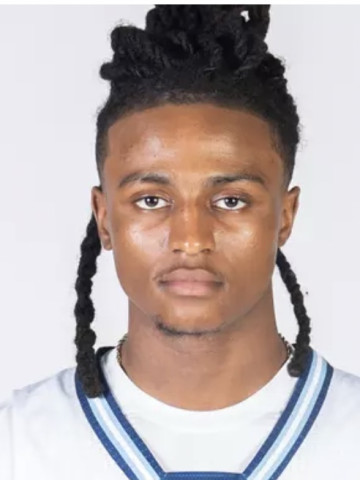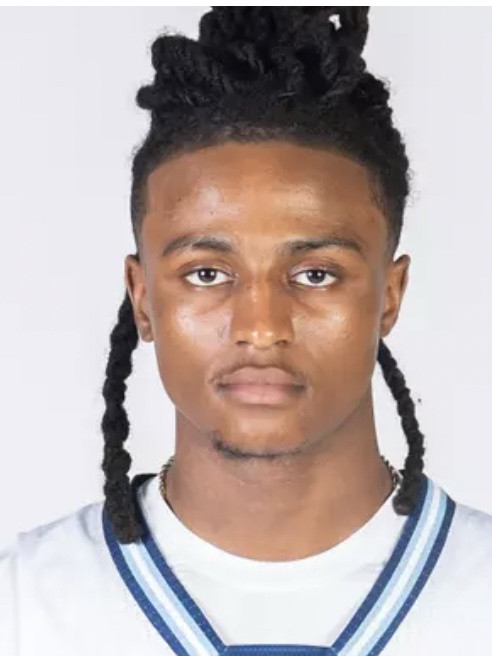Tuesday, October 21, 2025

View Larger +
PHOTO: URI
There is a perception of the younger generation that their mantra is, “I want it. I want it now. And I want it delivered.” All too often, they display a lack of patience or interest in working their way up and earning things.
URI guard Damone King is an exception to this mindset.
GET THE LATEST BREAKING NEWS HERE — SIGN UP FOR GOLOCAL FREE DAILY EBLAST
Redshirt = no playing time
King was considering attending a prep school, where he would have received playing time, but after discussions with University of Rhode Island Coach Archie Miller, his family, and others, King decided to attend URI with the understanding that he would redshirt. As a redshirt, he gave up any chance of playing. Redshirts receive scholarships and are considered team members. They can practice and participate in team activities, except for playing in games and traveling.
King was betting on his future.
He said, “I accepted the redshirt role because of the belief that it would help me later in my career.”
Redshirting was a positive experience
King continued, “I gave up game experience, but overall, it was beneficial. It was difficult to sit and watch. However, it’s been a positive experience, as I’ve gotten better during the past year. I am more advanced than if I had played in prep school and came to URI this year as a freshman.”
Under NCAA rules, athletes have five years to complete four years of eligibility. Although it’s his second year at URI, he is now listed as a “Redshirt freshman” and he has four years of eligibility left.
Impact on NIL potential
NIL and money are now things athletes must consider when setting their collegiate path. When asked if he thought his decision to redshirt would help his NIL potential, King responded, “Yeah, for sure. Because I will be older, more experienced, and a better player, so I will have more value when it comes.”
Physical development, mental readiness, skill enhancement, and adjusting to the pace, speed, and physicality of college ball are some of the reasons an athlete decides to redshirt.
When asked which of these factors most influenced his decision, the 6’2”, now 180 lb. King said, “Physical development for sure, and also skill enhancement. I have gained 15 pounds of muscle during the past year. I have also worked hard at shooting off the dribble, finishing at the hoop, and playing the two-guard position.”
Redshirting was difficult
King is straightforward and has an intense demeanor both on and off the court. When asked if it was difficult to redshirt, he said, “Yes, absolutely, because I love the game so much. Sitting and watching other people play while you had to remain on the sideline was difficult. It just hurts.”
Asked what helped him get through it, he said, “I talked with my mom a lot. I would also be sitting on the bench thinking I am not going to play, but I am gaining experience being here watching the game, listening to the coaches at time-outs, experiencing the lead-up to games, and the various game strategies. I would constantly remind myself of the payoff that I will benefit from.”
The kid can shoot!
In high school, King shot 51% from the field, 41% from three-point range, and 87% from the free throw line. Asked if he is confident he can put up those numbers in college, he said, “Yes, absolutely. I have been working on my shooting every day for the past year. When the team went on the road, I was in the gym shooting.”
When asked about his game, it was no surprise when King responded, “My biggest strength is making shots. I got really consistent with my three-ball, but my biggest strength, my whole life has been my mid-range shooting.”
One of the few returning players
Although he is young and has only been at URI for just over a year, King has a unique role on the team. He is one of only two scholarship players who have a full year of experience at URI. (Drissa Traore is the other returning player)
King was asked if he is using his experience to help and guide the new players and answered, “Yes, with both on and off court advice. I can tell them things that coach Miller likes and certain things that coach doesn’t like.”
Reflecting on his early life
King grew up in Louisville, Kentucky and when asked if there was something from growing up that sticks out in his mind and has impacted him as a person, King said, “Yes, two things. First and most significantly, my single mom making sacrifices for me and my sister so we could have a good life growing up, and I could pursue basketball. “
He continued, “I have a lot of cousins, and we were all very close. One of my cousins was murdered when he was shot with a bullet that was not intended for him.”
These life experiences have strengthened his resolve and determination.
Future of redshirting
The future of redshirting has become cloudy. Unrestrained transferring and the portal have altered an athlete’s traditional travel through a program. Previously, a player would work hard and develop, gradually gaining playing time as a sophomore and junior and blossoming as a senior. Now players can jump from team to team each year in search of playing time.
There are also voices within the NCAA advocating for allowing players five years of eligibility over five years, which would eliminate redshirting altogether.
There has also been a court decision, which is currently limited in scope, that has declared playing in junior college does not count against an athlete’s four years of college eligibility.
As the world of college athletics continues to change and evolve, Damone King, in navigating his way through his college experience, is very comfortable with his decision to put playing time on hold for a year of redshirting, which he believes will yield greater benefits down the road.
James Malachowski is the former Chairman/Managing Partner at RDW Group. He previously served as the chair of the Public Utilities Commission. He is a graduate of URI and PC.
Related Articles
Enjoy this post? Share it with others.

